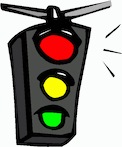Signaling and Higher Education

Duncan Black says he's "a big believer in the signaling model of higher education, in that a big chunk of its value is simply that it provides a signal to employers that you don't suck."
I never know what the baseline is here, but I think I'm less of a believer in the signaling model than are a lot of economist bloggers who I read. But what I do know is that both believers and skeptics in the signaling model ought to be highly motivated to try to find the country help find alternative signals. It's obvious that there's some signaling going on (I see resumés that say where people went to school but don't say what grades they got all the time) and getting a bachelor's degree is a very expensive form of signaling. What's more, the existence of and belief in the signaling effect serves to undermine the incentive for both students and faculty to actually focus on instruction. If everyone knew that there was some credible alternative signaling mechanism available, everybody would benefit. But it clearly doesn't work for eighteen year-olds to apply to jobs that would normally go to college graduates and just put their SAT score high up on the resume. There are a lot of coordination problems, social norms, etc.
But this country also has a lot of rich people interested in education policy, who oftentimes know a lot more about the business world than they actually do about education. Working on directly developing a mechanism that would make it easier for employees to signal "you should hire me" in a way that employers would regard as credible could produce huge gains.


Matthew Yglesias's Blog
- Matthew Yglesias's profile
- 72 followers



